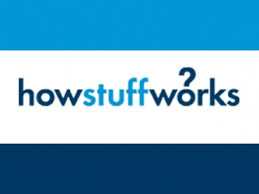One of the key policy drivers for Open Data has been to drive economic growth and business innovation. There’s a growing amount of evidence and analysis not only for the total potential economic benefit but also for some of the ways in which this is coming about. This evidence is summarised and reviewed in a new World Bank paper published today. There’s a range of studies that suggest that the potential prize from Open Data could be enormous – including an estimate of $3-5 trillion a year globally from McKinsey…
Read MoreAuthor: Staff Writer
Facebook unprecedented reveals search warrant of hundreds of accounts
Facebook revealed that since last summer it’s been fighting a court order that required it to disclose social-media information involving hundreds of people. “This unprecedented request is by far the largest we’ve ever received — by a magnitude of more than ten — and we have argued that it was unconstitutional from the start,” Chris Sonderby, Facebook’s deputy general counsel, wrote in a statement Thursday. The situation raises concerns over privacy in the digital age, when much of a person’s sensitive information is often available online and on mobile devices.…
Read MoreUnderstanding the Copyright’s Volition Requirement After Aereo
Jonathan’s post continues DisCo’s ongoing coverage of the Aereo case. Last week, Prof. Michael Carrier wrote a post for DisCo on the possible effect of Aereo on investment. Previously, DisCo writer Matt Schruers guest-posted on SCOTUSblog about how Aereo creates uncertainty for the cloud. One of the great attractions (or frustrations) of copyright law is that it is based on metaphysical distinctions. The most obvious of these is the idea/expression dichotomy. The Second Circuit in Computer Associates v. Altai observed that “drawing the line between idea and expression is a tricky business.”…
Read MorePrivate undersea cable ventures validate network growth trends
Google may invest in a multi-million-dollar undersea cable across the Pacific Ocean that will help handle increasing amounts of undersea traffic being sent across private networks, according to The Wall Street Journal. Despite arguments about Net neutrality, privately owned undersea cables, for example, give the companies that own it more control over traffic prioritization long before it reaches consumers. Google’s potential move makes sense in terms of a recent TeleGeography Global Bandwidth Research Service report, which found that while international backbone operators are still the primary users of international bandwidth,…
Read MoreBig IT vs SME IT in government – it’s really about changing IT suppliers’ behaviour
The Cabinet Office plan to bring in more SME IT suppliers and reduce dependence on the old “oligopoly” of big systems integrators (SIs) was always going to come under greater scrutiny once some of those SIs saw their lucrative outsourcing deals come to an end. The Financial Times ran a strange article recently featuring unattributed claims that ministers including business secretary Vince Cable were telling David Cameron that the pro-SME IT policy was wrong, after his department suffered email problems soon after it transitioned away from a Fujitsu mega-outsourcing deal.…
Read MoreReport: NSA was allowed to spy on Africa since 2010
Virtually no foreign government is off-limits for the National Security Agency, which has been authorized to intercept information “concerning” all but four countries, according to top-secret documents. The United States has long had broad no-spying arrangements with those four countries — Britain, Canada, Australia and New Zealand — in a group known collectively with the United States as the Five Eyes. But a classified 2010 legal certification and other documents indicate the NSA has been given a far more elastic authority than previously known, one that allows it to intercept…
Read MoreGermany cancels Verizon contract over spying anxiety
The German government has cancelled a contract with Verizon over concern that US firms may be giving data to US authorities. Verizon has provided internet services to a number of German government departments and the current contract was due to run out in 2015. The firm did not comment on the move. There was anger in Germany over allegations that a US agency bugged Chancellor Angela Merkel’s phone. Earlier this month Germany announced an investigation into those allegations which were made by a former contractor of the US National Security…
Read MoreTim Wu,The Father of Net Neutrality Returns to Do Battle With Comcast
Tim Wu saw firsthand how people can mess with the internet. Fifteen years ago, he landed a marketing job with a network equipment maker called Riverstone Networks. Riverstone made network routers, among other things, and it sold many of these to Chinese internet service providers who then used them to block traffic on their networks. After about a year, he left Riverstone, disillusioned but wiser. And today, Wu says that the time he spent there helped cement the idea that has made him famous: net neutrality. First proposed in a…
Read MoreNew Multistakeholder Initiative: “My Data Belongs To Me”
A new initiative by the World Summit Award (WSA) initiative seeks to use its global multistakeholder network to push forward personal data ownership and big data issues at UN discussions. At an open discussion, the WSA invited participants to share views on issues with the current system of data use, the need for permission-based access, and steps for further action. The workshop on “Data citizen rights, my data belongs to me” was organised by the WSA on 9 June, parallel to the United Nations World Summit of the Information Society…
Read MoreDiscovery Communications to sell HowStuffWorks.com for 18 % of its 2007 purchase price
The Wall Street Journal has reported that Discover Communications will be selling the popular website, HowStuffWorks.com at a loss on the sale as they are only realizing 18% of their 2007 purchase price. Read the WSJ Report here For Discovery Communications Inc., DISCA -0.49% the website HowStuffWorks.com proved to be one investment in digital media that didn’t work. Discovery said Monday it would sell the site, which offers explanations on topics such as “How magnets work” and “How do they make hollow chocolate Easter rabbits?” for $45 million, or less…
Read More









